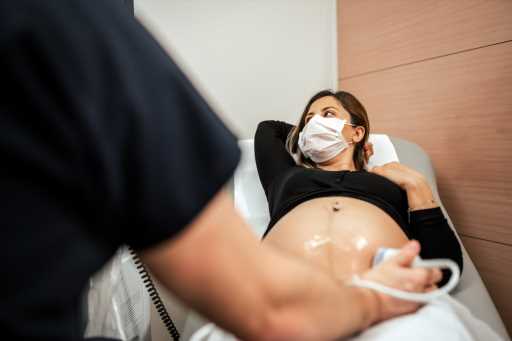New research out of Tel Aviv, Israel, suggests something medical experts have feared since the early days of the global COVID-19 pandemic: Contracting the novel coronavirus late in pregnancy can seriously increase your risk of a preterm birth.
The study — which tracked the outcomes of the pregnancies of more than 2,700 women who contracted COVID-19 while pregnant, compared to similar sample of pregnant women who did not — found that COVID-19 infections that occurred after the 34th week of pregnancy were associated with a seven-fold increase in premature births. This was true regardless of how severe the pregnant person’s symptoms were while they were sick.
Interestingly enough, there was no link between late-pregnancy COVID-19 infections and miscarriages, stillbirths, or underweight births. It’s also worth noting that participants who contracted COVID-19 during the first six months of their pregnancies — so, before week 27 — did not experience a greater risk of preterm birth.
The study out of Israel comes with some caveats. Researchers didn’t account for participants’ vaccination status, nor did they follow the pregnancies of any transgender men or gender non-conforming people. Their findings are also somewhat contradictory to previous studies on the topic, which did indicate a correlation between COVID-19 infections in pregnancy and miscarriages and stillbirths.
“This study adds to the robust evidence we have about the risks of catching COVID-19 in pregnancy, and how crucial it is that pregnant women are vaccinated against the virus,” Pat O’Brien, vice president for membership at the U.K.’s Royal College of Obstetricians and Gynecologists, told New Scientist. Additionally, the study’s authors recommended that all pregnant people after the 34-week mark “practice social distancing and respiratory protection,” such as wearing medical-grade face masks.
The Centers for Disease Control and Prevention (CDC) currently recommends that all people above the age of 6 get their vaccines for COVID-19. That includes “people who are pregnant, breastfeeding, trying to get pregnant now, or might become pregnant in the future.”
So, if you’ve been holding out over fears of the vaccine affecting your fertility, rest assured that this is not the case. In fact, getting vaxxed while pregnant or after having recently been pregnant can significantly decrease your risk of severe illness.
Before you go, check out our pregnancy bedrest essentials we swear by:

Source: Read Full Article
